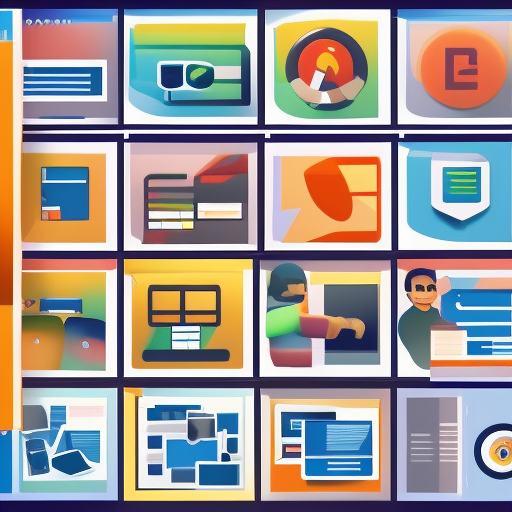Community Software Tools
“Don’t join an easy crowd; you won’t grow. Go where the expectations and the demands to perform are high.”
– Jim Rohn
Community
The term "community" is used to describe a group of people with shared interests or values. In the early days of the web, community-driven forums and discussion boards were essential for exchanging information and ideas. Today, community-driven sites like Stack Overflow and GitHub are important for sharing knowledge and collaboration, but they also play a role in promoting and popularizing new technologies. As we move into the era of web3, community will continue to be important.
Community-based discussion forums and discussion boards are valuable as these forums provide a place for users to share information and ideas, and to ask questions about a particular technology. Community-based discussion boards also help by providing a centralized place for users to share information and ideas. Badges can be used to identify community members who are knowledgeable about a particular topic and have significantly contributed useful information or ideas. Ultimately, community-based discussion forums and discussion boards can help to create a more informed and engaged user base.
How online communities can be used to benefit business students?
Joining and participating in an online community for business students can provide several benefits, including:
- Access to a wealth of information and resources. Online communities are a great place to find information and resources on a variety of topics related to business.
- Opportunities to connect with other business students. Online communities offer the opportunity to connect with other students who share your interests and passions. This can be a great way to build relationships and networking connections.
- The ability to ask questions and get feedback. Online communities are a great place to ask questions about business-related topics and get feedback from other students and experts.
- A sense of community and support. Online communities can provide a sense of community and support for business students as they work through their studies.
Gamify with Badges & Leaderboards
Gamify with Badges & Leaderboards
Award engagement and helpfulness and promote community advocates and connections.
Allow Multi-Media Discussions
Allow Multi-Media Discussions
Embed or attach videos, code, or images to create context in messages and nested replies.
Customize Member Notifications
Customize Member Notifications
With transactional email, members have the power to get the notifications they want, when they want them.
Personalize Member Profiles
Personalize Member Profiles
Show badges, activity stats, contact details, and more to foster member connections.
Public Communities
Search engine optimized (SEO) forums with interaction-based opportunities.
Private Cohorts
Member- or moderator-created discussion groups for classes.
Member-Only Communities
Invitation-only forums for private discussions that require unique login for viewing and engaging.
Community / Discussion Board Rules
- Participate: This is a shared learning environment. No lurking in the cyberspace background. It is not enough to login and read the discussion thread of others. For the maximum benefit to all, everyone must contribute.
- Report Glitches: Discussion forums are electronic. They break. If for any reason you experience difficulty participating, please call, email, or otherwise inform me of the issue. Chances are others are having the same problem.
- Help Others: You may have more experience with online discussion forums than the person next to you. Give them a hand. Show them it’s not so hard. They’re really going to appreciate it!
- Be Patient: Read everything in the discussion thread before replying. This will help you avoid repeating something someone else has already contributed. Acknowledge the points made with which you agree and suggest alternatives for those with which you don’t.
- Be Brief: You want to be clear, and to articulate your point, without being preachy or pompous. Be direct. Stay on point. Don’t lose yourself, or your readers, in overly wordy sentences or paragraphs.
- Use Proper Writing Style: This is a must. Write as if you were writing a term paper. Correct spelling, grammatical construction and sentence structure are expected in every other writing activity associated with scholarship and academic engagement. Online discussions are no different.
- Cite Your Sources: Another big must! If your contribution to the conversation includes the intellectual property (authored material) of others, e.g., books, newspaper, magazine, or journal articles (online or in print) they must be given proper attribution.
- Emoticons and Texting: Social networking and text messaging has spawned a body of linguistic shortcuts that are not part of the academic dialogue. Please refrain from 🙂 faces, c u l8r, LOL, and the like.
- Respect Diversity: It’s an ethnically rich and diverse, multi-cultural world in which we live. Use no language that is, or that could be construed to be, offensive toward others. Racists, sexist, and heterosexist comments and jokes are unacceptable, as are derogatory and/or sarcastic comments and jokes directed at religious beliefs, disabilities, and age.
- No YELLING!: Step carefully. Beware the electronic footprint you leave behind. Using bold upper-case letters is bad form, like stomping around and yelling at somebody (NOT TO MENTION BEING HARD ON THE EYE).
- No Flaming!: Criticism must be constructive, well-meaning, and well-articulated. Please, no tantrums. Rants directed at any other contributor are simply unacceptable and will not be tolerated. The same goes for profanity. The academic environment expects higher-order language.
- You Can’t Un-Ring the Bell: Language is your only tool in an online environment. Be mindful. How others perceive you will be largely up to you. Once you’ve hit the send button, you’ve rung the bell.
- Topics:
- Moderation Capability
- Admin / Moderator
- Edit post /
- Report Abuse
- Upvote / Reply to a Topic
- Follow a Topic
- Highlight Reply as Solution
- Listing / Filter / Sort Topics
- Categories / Tags (subcategory)
- Stored in database (HubDB)
- Moderation Capability
- Member Profile
- membership profile
- modify / edit
- choose visibility
- highlights member posts
- topics / replies / solutions
- ability to reply / post videos
- Dashboard / Reporting
- create dashboard / report
- Top Categories by Topic
- Top Categories by # of Replies
- Top Members by New Topics
- Topics with no replies in last 7 days
- Top Topics by Follower Count
- create dashboard / report
- Workflows
- Topic is an object
- automation is enabled
- workflows
- Programmable emails
- Transactional emails (at 8am every day)
- PowerUps
- HubSpot Community Software Platform
- Context of CRM to Community
- Topics / Replies / Member Profiles
- How it works on the frontend
- What it looks like in the backend
- What is Cohortium
- 100% of data stored / integrated in HubSpot Portal
- forum-based experience
Dashboards for BA 7060
Community Dashboard:
https://app.hubspot.com/reports-dashboard/8152646/view/9941993
BA 7060 Videos Watched Dashboard:
https://app.hubspot.com/reports-dashboard/8152646/view/10073394
References
Additional information / references for community:
- How to Launch a Successful Online Community: A Step-by-Step Guide:
https://blog.hubspot.com/marketing/online-community-launch - A better way to build a brand: The community flywheel: https://www.mckinsey.com/capabilities/growth-marketing-and-sales/our-insights/a-better-way-to-build-a-brand-the-community-flywheel
- The Importance of an Online Community for Business Students: https://so.ilitchbusiness.wayne.edu/blog/the-importance-of-an-online-community-for-business-students
- 24 ideas for creating a discussion-rich classroom: https://ditchthattextbook.com/discussion/

